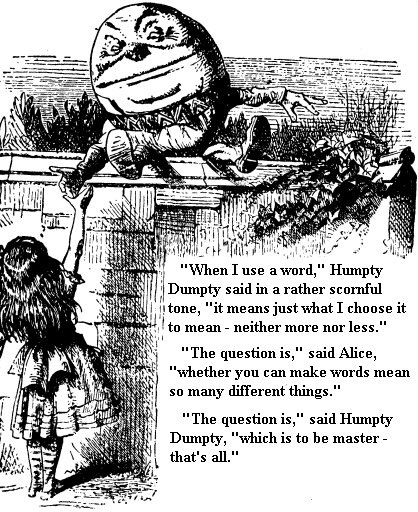Word Misappropriation
As of late, I’ve become increasingly aware of how specific words have been infecting our consciousness. How the oversimplification of language and, hence, concepts has been doing harm to our society and discourse. I call that: Word misappropriation.
This phenomenon occurs when groups of people pillage a particular word or term, declare their own definition of it and then insist that the rest of us accept that very definition and all the beliefs systems that follow it.
These are often the beliefs, and definitions, of very specific and aggressively vocal groups of people and often have little in common with objective reality. In this way, at worst, words become weaponized. At best: Objects of mass confusion. If we can’t even agree on the definitions of words and discuss them openly, how could we possibly begin to approach discussing what it is that they really mean for us? What happens when words are robbed of their true meaning?
I’ve started to keep a list of such words and terms, crowdsourcing along the way.
There are words like “Nazi” and “White Supremacist” which have become the latest trend-du-jour to throw around. Then there are words like inclusiveness — which have been redefined as “inclusive but only if you’re…” Step outside the lines of pre-approved criteria of beliefs and you’re ejected from your seat at the table. While you’re flying through time and space, you might want to check your privilege. If you think that’s about class, upbringing, education, or ability (physical or intellectual), think again, fool. No, there’s only one privilege that tops the hierarchy and it’s race. Except, until recently, that didn’t use to be the case. But, seemingly overnight, all other privileges have faded away to create room for just one big fat elephant. The others are still there, but we’re not really allowed to talk about them.
Next there’s a fun term: Micro-aggression. This was a term coined in the 1970s by Harvard University professor Chester M. Pierce to describe the insults and slights he had frequently witnessed against black people. Today, mispronouncing someone’s name can be considered a micro-aggression — regardless of whether any racial bias was in play or not.
“White” is a puzzling conception, too. Who is considered white these days? Jews and Italians seem to be, despite a genocide and on-going hate crimes towards the former group, and vast historical (but forgotten) discrimination in the U.S. towards the latter. Meanwhile, those with Hispanic origins, and, say, Arabs, are not considered white — at least not today. They are people of color. Who has made that particular decision? On what basis? Until very recently, Asians were considered “white adjacent.” So-called elite colleges like Harvard would go as far as actively discriminating against Asian-American applicants by setting the highest bar for admission for Asians, and lowering it for others depending on their ethnic standing.
But it’s okay, because now the very same people most definitely tweet out their support for the community with the hashtag #StopAsianHate. To define someone in these “Black and White” terms erases their humanity and their individuality. It groups people together who may have little in common but whatever is perceived to be the color of their skin.
One term has been perhaps spotlighted more than most. Most likely due to its frequent celebrity association. That term would be: Cancel culture. Those who are in favor, are quick to point out that it’s really more like “accountability culture.” Or an excuse for racists to use the N word and then whine about being taken to task. Opponents take a different view. They view cancel culture as an extension of intolerance culture— where those affected haven’t necessarily committed any sins, but in fact merely dared to express a less popular thought or view, or ask a question deemed somehow unacceptable. Perhaps they’ve unintentionally offended someone? For that crime, they may pay the price of losing their livelihood, being harassed, ostracized or even have their life in danger. But more often than not, the environment of “cancel culture” creates a silence due to fear. Perhaps it’s time for a new term?
There are so many more terms and words that we have little consensus on: “Safe space,” “far-right,” “far-left,” “fascist,” “equity and inclusion,” “snowflake,” “woke,” “conservative,” “progressive,” “fragility,” “feminism,” “toxic positivity,” “minority,” “cultural appropriation,” “gaslighting,” “victimhood,” “racist,” “ableist,” and the list goes on and on.
Perhaps by beginning to define and explore them more openly, we can at least start some semblance of a productive dialogue and avoid unfairly mislabeling people and actions.
Watch this space.




Yes, in this age, it might be said that political battles are largely won and lost on this terrain. "Racism" used to mean "prejudice based on race"; now it means "any set of circumstances under which white people are on average doing better than any other racial group or are in the majority vis-a-vis other racial groups". "Equity" used to mean "everyone gets treated fairly"; now it means "reordering society to ensure that every group experiences the same outcomes". So now to oppose racism and favor equity essentially guarantees that you favor a radical and endless government-imposed redistribution of money, power, and people around the Earth.
I like the phrase, "word salad." Some toss together a ton of buzz words but actually say nothing meaningful. And if you ask for clarification, you're automatically a "denier." Great piece.